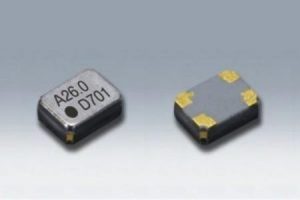Why Real-time clock is crucial?
What is exactly a Real-time clock for?
- An electrical component or device known as a real-time clock (RTC) preserves time even when the computer or device it is linked to is turned off or restarted. An RTC requires a separate battery or power source to keep track of time while it is operating, in contrast to the system clock, which records the time when the computer is running.
- The RTC is a component of many electronic devices, such as computers, cellphones, and other gadgets that need precise timekeeping. Because time precision is crucial, it is frequently utilized in embedded systems, industrial automation, and other applications.
- The RTC often includes its backup battery, crystal oscillator, and microprocessor to keep time even when the main system’s power is off. Via a low-level interface like I2C or SPI, the RTC interfaces with the system and gives it precise time and date information.
- Alarms, timers, and temperature sensors are a few more features that real-time clocks can include, which can be beneficial in various situations. In conclusion, the real-time clockis an essential part of many electronic systems that require precise timekeeping and is essential to the efficient operation of these devices.

What are the pros of the real-time clock?
The contemporary computer needs real-time clocks to function. They serve as a reference point for other system tasks and the precise time required to ensure the synchronized operation of a system. Even when the main power is turned off, they maintain incredibly precise time. They also include a range of functionalities, such as timers, alarm clocks, and calendar features. This clock is a crucial part of many electronic devices, and its advantages include precise timekeeping, energy economy, decreased system load, extra functions, and time synchronization. A real-time clock (RTC) has several advantages, such as:
- Accurate timekeeping:
RTCs are made to maintain the correct time even when the linked device is turned off or restarted. This ensures that the date and time are accurate when the device is turned back on, which is crucial in many applications.
- Energy efficiency:
Because they need to maintain track of time and date information, RTCs use a fraction of the power other parts of the device use. As a result, equipment equipped with RTCs may function for extended periods without requiring charging or new batteries.
- The decreased workload on the system:
Because the RTC maintains timekeeping independently of the device’s primary CPU, it lessens the stress on the system and may help the system run better.
- Other functions:
Alarms, timers, and temperature sensors are just a few extra features RTCs frequently have available. These features can be helpful in a variety of situations.
- Time synchronization:
RTCs may be synced with outside time sources, such as a network time server, to ensure the device has the most precise time possible. This is especially crucial for applications where precise timing is essential, such as industrial automation or financial trading.
Usage of real-time locks in applications:
When precise timekeeping is needed, real-time clocks (RTCs) are utilized in several applications even while the device is off. RTCs serve a crucial role in ensuring that these systems function correctly and effectively, and they are a key part of many diverse applications that require precise timekeeping. RTCs may be utilized in a variety of applications, as shown by the following examples:
- Computers:
A real-time clock (RTC) is frequently used in computers to maintain system time and date, even when the machine is switched off or restarted. Doing this may make you confident that the computer will be turned on at the right time and date.
- Smartphones and other mobile devices:
RTCs are used in smartphones and other mobile devices to manage alarms, timers, and other time-based functionality, as well as the system time and date.
- Industrial automation:
RTCs are used in industrial automation systems to synchronize operations and ensure that various system components are accurately interacting. This might be significant in some industries, like manufacturing, where precise time is required for production operations.
- Financial trading:
RTCs are employed in financial trading systems to guarantee that transactions are carried out precisely and on schedule. In this case, even a slight difference in time might cause large monetary losses.
- Security systems:
To handle access control and surveillance activities, RTCs are utilized in security systems. To guarantee that access to sensitive locations is correctly monitored and documented, accurate timekeeping is crucial in many applications.
Why are real-time clocks crucial?
- Accurate timekeeping:
Even when the linked device is turned off or restarted, an RTC is made to maintain precise time. When the device is turned back on, this guarantees that the date and time are accurate, which is crucial in many applications.
- Time-sensitive applications:
Accurate timekeeping is essential in financial trading, industrial automation, and transportation applications. RTCs offer precise time information that may be utilized to synchronize processes and guarantee that various system components are operating as intended.
- Energy efficiency:
RTCs need to maintain track of time and date information, so they use extremely little power compared to other device parts. RTC-equipped gadgets can therefore run for extended periods without requiring charging or new batteries.
- Reduce system load:
System effort is reduced since the RTC maintains timekeeping independently of the device’s primary CPU, which can enhance system performance.
Conclusion:
Notwithstanding the system’s condition, a real-time clock (RTC) is a form of a clock that consistently maintains track of the current time. It is frequently a trustworthy timing source in computers, embedded devices, and other digital systems. ChipSun products are of the highest caliber and satisfy customer needs. From its inception, the company has worked to increase its clients’ value by providing various solutions for a wide range of component demands and flexible design requirements. If a company wants to prosper, among other things, it needs to go above and beyond for its customers in terms of cost, quality, delivery, and service.
